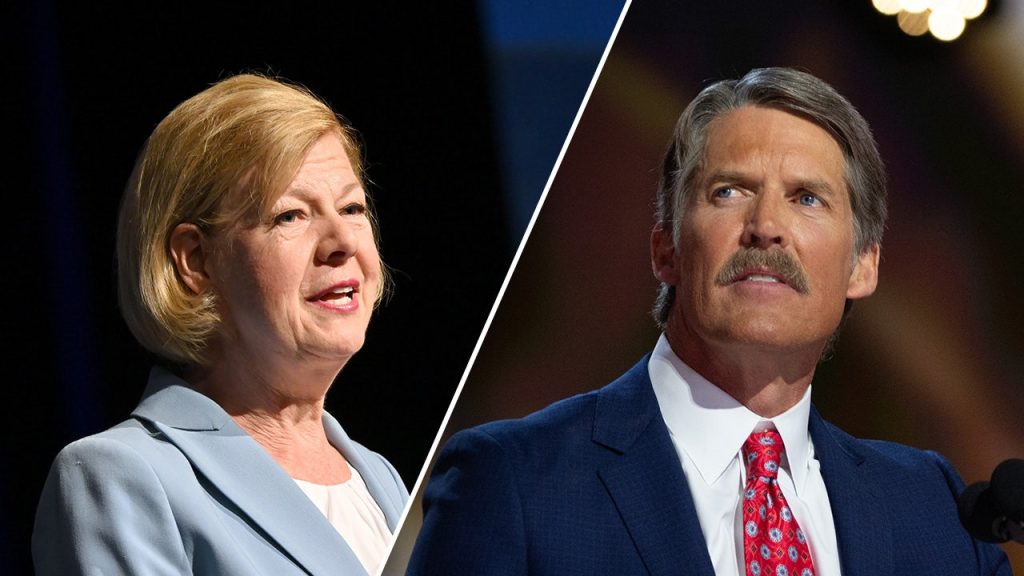Several newly released polls have shown a tightening Senate race in Wisconsin, where incumbent Democratic Senator Tammy Baldwin is facing a strong challenge from Republican Senate candidate Eric Hovde. Polls from Marist, Quinnipiac, and AARP have all indicated a close race, with Baldwin holding a slim lead over Hovde, who has been gaining ground among Wisconsin voters. Despite Baldwin being ahead in the polls, the race is considered “lean Democrat” by the Cook Political Report, indicating a competitive contest ahead of the election.
As the general election approaches and voters start to make their final decisions, Hovde has increased his name recognition and support, closing the gap between him and Baldwin. In previous polling earlier in the year, Baldwin had a more significant lead over her Republican challenger, but recent polls show a much closer race. The Senate race is being closely watched as Wisconsin is seen as a pivotal state in the Electoral College count, with both candidates working hard to secure their position in a closely contested race.
One factor that has come under scrutiny in the campaign is Baldwin’s relationship with private wealth adviser Maria Brisbane. Opponents of the Senator have raised concerns about a potential conflict of interest due to Brisbane’s position and called for an investigation. Baldwin has responded to the accusations by releasing an ad denying any wrongdoing and labeling the charges as false. The controversy surrounding Baldwin’s personal life adds an additional layer of complexity to the already competitive Senate race in Wisconsin.
Wisconsin is considered a toss-up state in the presidential election, according to the Fox News Power Rankings forecast, with both Donald Trump and Vice President Kamala Harris in a deadlock. The state’s status as a swing state can also have implications on the Senate race, as split-ticket voting becomes less common. In the 2016 election, every Senate race went in the same direction as their state voted in the presidential contest, highlighting the importance of Wisconsin in determining the outcome of both races.
Senator Susan Collins of Maine was the only exception in the 2016 election, where her Senate race diverged from the presidential choice of the state. Collins’ moderate reputation and willingness to break from her party contributed to her victory, whereas Baldwin has aligned herself closely with President Biden and the Democratic Party. Hovde, on the other hand, has received the endorsement of Trump, which could potentially boost his campaign in Wisconsin. The close race and fluctuations in polling numbers indicate a competitive contest between Baldwin and Hovde leading up to the election.
Recent polls conducted in Wisconsin by Quinnipiac, Marist, and AARP have shown varying results, with margins of error ranging between +/- 3.0 to 4.0 percentage points. The polls were conducted with likely voters in the state, with the latest data indicating a close race between Baldwin and Hovde. As the final weeks of the campaign unfold, both candidates will continue to make their case to Wisconsin voters in a closely watched Senate race with national implications.


